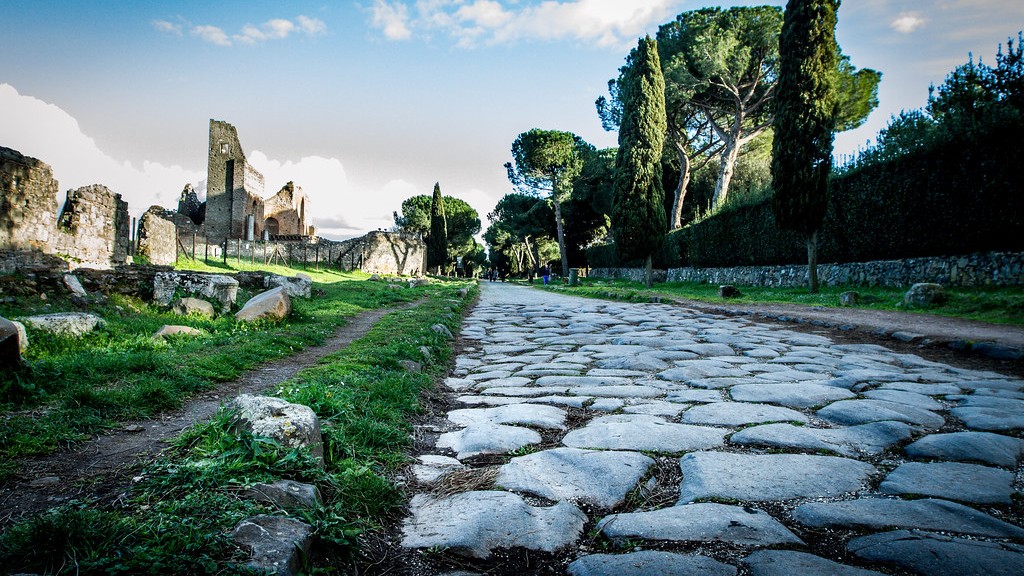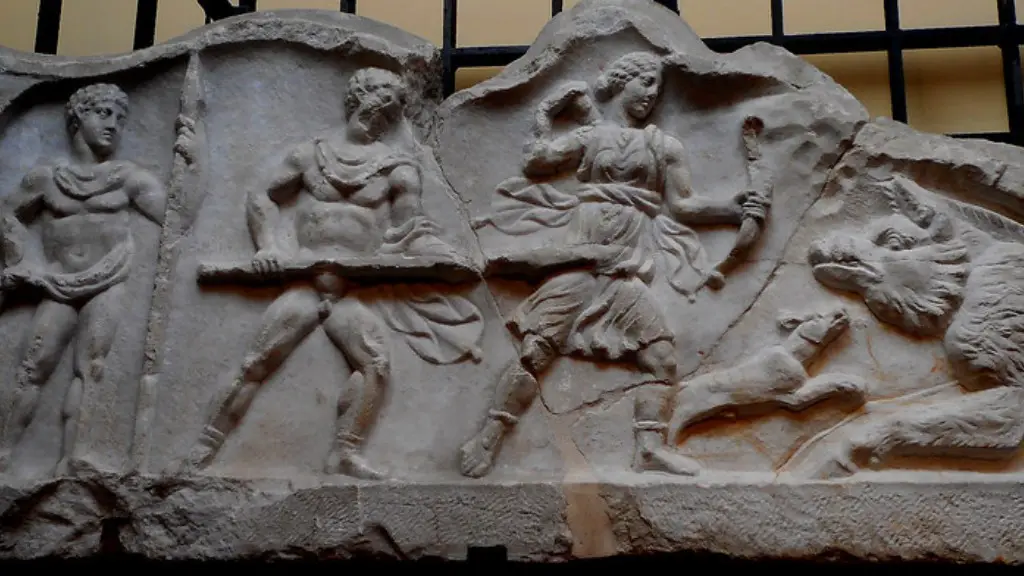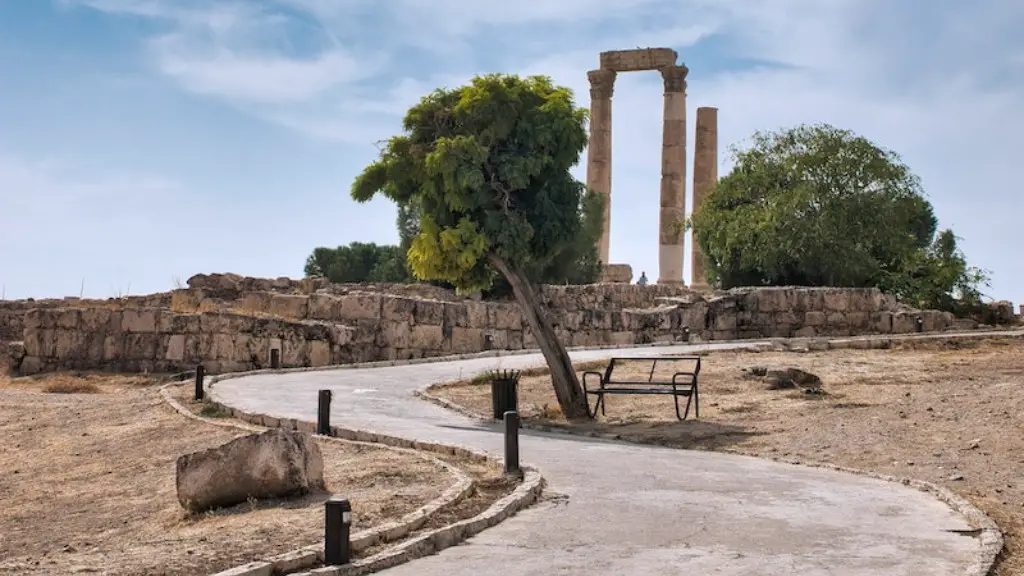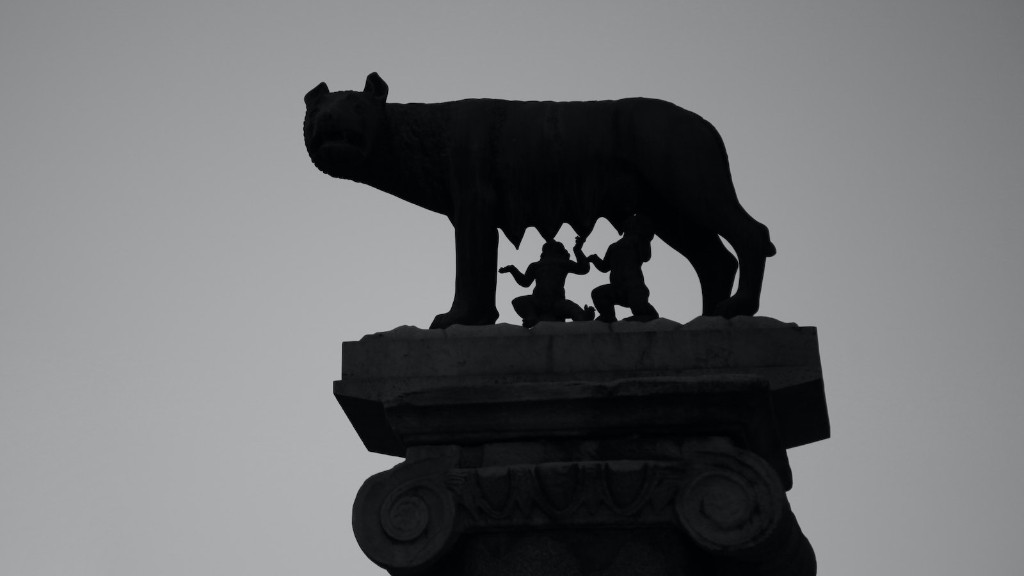Women in Ancient Rome
The role of women in ancient Rome was largely confined to the home. The law did not give women equal access to public life and in some cases, their rights were limited. This was a time of male dominance, and women were not seen as equals by their male counterparts. Women in ancient Rome had few legal rights and were not allowed to participate in the public sphere. The law saw them as a minor and their obligations were limited to the roles of housewife and mother. Women were not allowed to hold public office or stand for election, and their status was largely dependent upon their husbands and fathers.
In contrast to the legal restrictions, the historical literature of ancient Rome paints a more complex picture of women’s experiences. Ancient Roman women were highly respected, often honored for their contributions to the family and society. Women were actively involved in religious, economic, and political life, although their influence was limited. They often held positions of power and influence in their families and communities, and their legacy has continued to shape society in many ways. Women in Ancient Rome often had a strong sense of autonomy, even in the face of oppressive legal restrictions. People began to recognize their unique qualities and potential and so, women in Ancient Rome enjoyed greater social rights than women in other civilizations of the time.
Marriage was considered a crucial part of a woman’s life in Ancient Rome. Women were expected to become wives and mothers as soon as possible, and once married, their husband had absolute authority over them. Women in Ancient Rome were often secluded and hidden away from public view, seen as the property of their husbands, who were responsible for their actions and well-being. This social expectation of woman put a great deal of pressure on the female and undermined their rights, but it also meant that those who were able to find themselves in a marriage of mutual respect and understanding were extremely lucky. The Roman poet Ovid noted that, “Happiness is found in a good wife.”
Life for women in Ancient Rome could be hard, especially if they were lower social classes. Women of the lower classes had to work hard in the home, in fields, and in the marketplaces, trading and bartering goods. The upper classes, however, were more able to enjoy a higher quality of life. Wealthier women in Ancient Rome typically had servants to do their chores and they were able to take part in social events such as parties, weddings, and festivals. They could also mix in high society and enjoyed a certain amount of respect and freedom.
Education was limited for women in Ancient Rome. There was no formal education system for girls, and most women were expected to learn basic skills such as embroidery and cooking from their mothers. Upper-class women, however, were able to access higher education such as rhetoric and Latin, and some were even tutored in Greek philosophy. This allowed them to take part in intellectual discussions, read books, and write poetry, something unheard of for lower-class women.
Despite the limitations imposed by the patriarchal society, women in Ancient Rome had an influential role in society. They were respected for their practical skills; their domestic duties; as well as their religious roles. Women were able to shape Ancient Roman culture to a certain extent and their legacy can still be felt in modern times.
Women’s Legal Status
The legal status of women in Ancient Rome was far from equal. Women were seen as subordinate to their fathers and husbands and had few individual rights. Women were unable to vote, legally own property, sign contracts, or appear in court. Their right to inheritance was also limited and they had no legal recourse if they were mistreated by their husbands. This patriarchal system prevented women from gaining any real power in the public sphere, which left them with very few opportunities.
Despite the legal inequality, women in Ancient Rome still had a certain amount of influence in the home and in their communities. Women were able to pressure their husbands in certain ways and often used the law to their advantage. Ancient Roman women were adept at manipulating the legal system and were often able to exercise a surprisingly large amount of autonomy and influence, often in ways that were not possible for men.
Women in Religion
Women in Ancient Rome had a unique place in religion. They held certain priestly and spiritual roles that could not be held by men. Women could take part in cults, such as those dedicated to Ceres, Diana, or Juno, as well as officiate ceremonies and festivals. It was believed that women were more in touch with the divine and had a natural understanding of the gods.
The cults and religions of Ancient Rome were often seen as a way for women to gain power in society. Women were able to rise through the ranks of these cults, to eventually become highly respected leaders. Religion was an area in which women could exercise their independence and take part in decisions. Although these roles had limited influence in the public sphere, they were still an important part of Ancient Roman religion and culture.
Women in Ancient Rome played an important role in religious life, as well as in other aspects of daily life. Their status may have been limited, but they still contributed to society and had a strong sense of autonomy. This legacy is still felt today, in the way women are viewed in many cultures, and the contributions they are capable of making in all areas of life.
Women’s Political Activity
Although women were limited in their legal and political rights, they were still active in politics in Ancient Rome. Upper-class women held positions in religious organizations and could influence decisions through their patronage networks. Women were also active in social organizations and public gatherings, offering important arguments and opinions on various topics. This allowed women to take part in the public sphere, even if their influence was limited.
Women had a particularly influential role in political decision-making, through their patronage networks, their connections within the legal system, and their involvement in religion. In addition, upper-class women were often related to powerful men who controlled large amounts of resources, and were able to use this influence to influence important decisions, both in their families and in the wider society.
Women’s involvement in politics was limited in Ancient Rome, but it still had an effect on the political landscape. Women’s contributions may not have been visible in official documents and records, but they still had a large impact on the decisions and policies of their society. Women’s influence has continued to shape Rome for thousands of years and, even today, can be seen in politics, law, and religion.
Women’s Representation in Literature and Art
Women had a critical role in the literature and art of Ancient Rome. Women were often featured in works of poetry, drama, and other forms of literature and their representation was often complex and nuanced. They were depicted as strong and capable, as well as delicate and submissive. This complexity was often used to explore the human condition, showing both women’s power and their limitations.
Women were also featured prominently in Ancient Roman art. They were often portrayed as goddesses, mothers, and heroines and their images often depicted aspects of grace and beauty. Women were also often depicted as objects of beauty and admiration, often used as visual symbols to illustrate their status in society. These representations were largely idealized, but they still showed the complexity of women’s roles in Ancient Rome.
Despite their legal and political restrictions, women had an important and influential role in literature and art in Ancient Rome. Their representation in these works often created complex, nuanced views of women that allowed them to be seen in all their strength and capacity. This legacy has continued to inspire art and literature today, and to influence societal perceptions of women.
The Legacy of Women in Ancient Rome
The legacy of women in Ancient Rome has maintained its influence through time. Women have been inspirational figures in the arts, literature, and politics, and have been responsible for shaping and influencing Roman society in countless ways. Women have continued to be influential figures in many aspects of life and have fought to obtain rights and recognition in a male-dominated world. Women in Ancient Rome left a lasting impression that can still be seen today.
The history of women in Ancient Rome may not have been perfect, but it has had a strong influence on the development of society. Women have been an important part of history and have played a critical role in the evolution of our society. Their legacy has shaped culture and society in many ways, and their influence can still be seen today.





